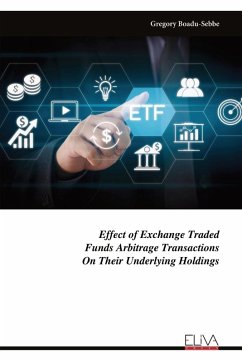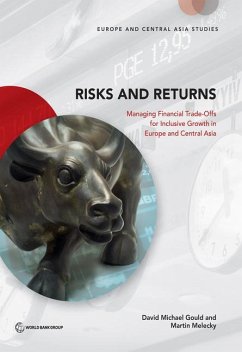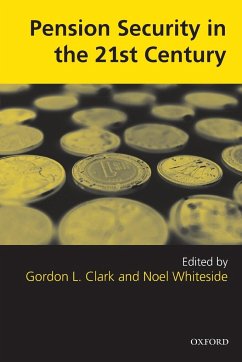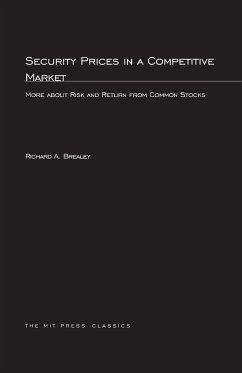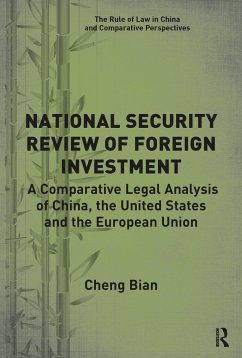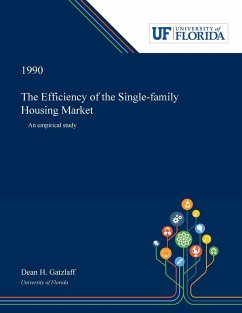
The Arbitrage Model of Security Returns
An Empirical Evaluation

PAYBACK Punkte
33 °P sammeln!
Abstract: Over the last two decades, the Capital Asset Pricing Model (CAPM) has emerged as the dominant theoretical basis for much of the research in financial economics. Because direct observation of the market portfolio is a pre-requisite for any valid application of the CAPM, it cannot serve as a theoretical basis for empirical research in securities markets. The Arbitrage Pricing Theory (APT) is a theoretical alternative to the CAPM in which the market portfolio plays no particular role. The purpose of this research is to develop and test a model of the security return generating process b...
Abstract: Over the last two decades, the Capital Asset Pricing Model (CAPM) has emerged as the dominant theoretical basis for much of the research in financial economics. Because direct observation of the market portfolio is a pre-requisite for any valid application of the CAPM, it cannot serve as a theoretical basis for empirical research in securities markets. The Arbitrage Pricing Theory (APT) is a theoretical alternative to the CAPM in which the market portfolio plays no particular role. The purpose of this research is to develop and test a model of the security return generating process based on the APT. Particular emphasis is placed on two facets of the proposed arbitrage model. First, the central prediction of the APT is an absence of arbitrage opportunities, the empirical identification of which would lead to a rejection of the theory. Thus, the first use to which the model is put is the examination of abnormal performance for the securities individually and jointly. The second application involves an event study comparison of the arbitrage model and a popular variant of the market model. The objective of this comparison is to establish the stability and usefulness of the arbitrage model against a known benchmark. In light of the growing list of empirical anomalies associated with the market model and the difficulties in application of the CAPM, an empirically tractable and theoretically sound model of security returns would be a significant step forward in financial research. The data used in the study are daily returns for individual securities from the CRSP file and cover the period 1962 through 1979. The results indicate substantial support for the APT and the arbitrage model. Significant arbitrage opportunities are found to occur in less than 1% of the individual cases, and the hypothesis of jointly zero abnormal performance cannot be rejected in any case. In the event study comparison, the arbitrage model was found to work at least as well as the market model in all cases and was markedly superior in accounting for the January effect. Dissertation Discovery Company and University of Florida are dedicated to making scholarly works more discoverable and accessible throughout the world. This dissertation, "The Arbitrage Model of Security Returns" by Bradford Dunson. Jordan, was obtained from University of Florida and is being sold with permission from the author. A digital copy of this work may also be found in the university's institutional repository, IR@UF. The content of this dissertation has not been altered in any way. We have altered the formatting in order to facilitate the ease of printing and reading of the dissertation.



